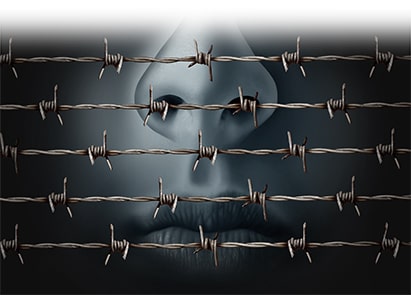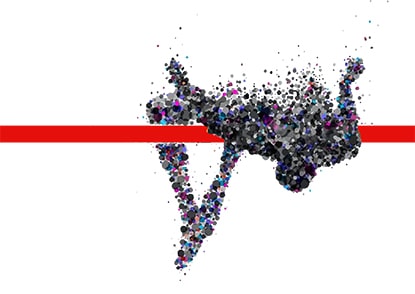Video Game Censorship: Indian Purview
 With millennium progressing into the second decade, the governments in all the countries have brought Interactive Video Game Industry under its radar to restrict the increasingly graphic violence in the computer or digital games which intends to excite and interest the gamers. The chant of “protect the children” from the non-governmental organizations and National and State Commission of Children and Women in different states.
With millennium progressing into the second decade, the governments in all the countries have brought Interactive Video Game Industry under its radar to restrict the increasingly graphic violence in the computer or digital games which intends to excite and interest the gamers. The chant of “protect the children” from the non-governmental organizations and National and State Commission of Children and Women in different states.
In a research investigation by Dr Jeanne Funk duly published in the Journal of India Pediatrics, it was revealed that children found violent and high-stress games exciting especially among the children who are in age group of class 7th and 8th students, 29% were inclined towards sports games but with violent graphics and a mere 2% were interested in educational games. With the advancement in technology, digital game designers have amplified the sadism and violence content with more realism.
As a leader in the arena of technology and innovation, as well as the ingenuity in designing rules and regulations for the same, United States of America, began the censorship initiative in video and computer games. This began with the imposition of a voluntary rating system which mandated the gaming company to provide ratings to the game produced and designed by the company. The gaming industry also responded positively by adopting rating system proposed by Entertainment Software Rating Board (ESRB) ranging from Everyone (E) to Mature (M) and above 17 shall be imprinted on Adults only (A.O.). The various states of the United States of America (USA) sprang up with restrictive laws but were vehemently resisted by the entertainment industry.
With gaming industry and censorship issues in India, one point is worth mentioning that there is not one dedicated piece of legislation that there is no specific statute in India related to the regulation of video games with regards to content that is enveloped in it. Moreover, no specific court case can be cited, which deals with the issue related to this topic.
The various legal provisions with regards to video games in India can be gathered from:
I. Article 19 (2), Part III of the Constitution of India lays down that though provides freedom of speech and expression, but it also provides the reasonable restriction of this fundamental right on the basis of decency and morality.
II. Article 39 (e) and (f), Part IV of Constitution of India is the Directive Policy of State that the State shall take steps to ensure that innocent children are not abused or corrupted in any way. Moreover, the children are provided facilities to develop physical and mental faculties in a healthy manner and with dignity. Besides, youth has to be shielded from exploitation and moral and material abandonment.
III. Section 5(B)(I) of The Cinematograph Act, 1952 provides rules for guiding the Censor Board of the Film and cast power on the Board to reject the request of any moviemaker if against public order, decency or morality.
 IV. Section 292 of the Indian Penal Code (IPC) provides the for the crime of obscene publication whether physical or digital. It defines obscenity as any book, writing, pamphlet, painting, drawing, representation or any other object be deemed to be obscene if it is appealing to prurient interest with the effect of depraving and corrupting the senses of the person with regards to the matter contained or embodied in it.
IV. Section 292 of the Indian Penal Code (IPC) provides the for the crime of obscene publication whether physical or digital. It defines obscenity as any book, writing, pamphlet, painting, drawing, representation or any other object be deemed to be obscene if it is appealing to prurient interest with the effect of depraving and corrupting the senses of the person with regards to the matter contained or embodied in it.
VI. The Information Technology Act, 2000 (IT Act):
- Section 67: Any person contravention, on first conviction be punished with imprisonment for a term upto 3 years and with fine maximum INR 500,000 and subsequent conviction with imprisonment upto 5 years and fine upto INR 1,000,000.
- Section 67A: Any person in contravention be punished on first conviction with imprisonment for a term upto 5 years and fine upto INR 1,000,000 and for subsequent conviction with imprisonment for a term upto 7 years and fine extending to INR 1,000,000.
- Section 67B: Any person in contravention be punished on first conviction with imprisonment for a term extending to 5 years and fine extending to INR 1,000,000 and for subsequent conviction with imprisonment for a term and extend upto 7 years and fine upto INR 1,000,000
- In Sharat Babu Digumatri v. Government of NCT of Delhi, the Supreme Court held that, though IPC makes the sale of obscene material through traditional hard copies by publication an offence, but once the offence starts a nexus with electronic medium/ record under the IT Act then charges proceed under the IT Act and not under the IPC. This ensures special law in this issue that is the IT Act shall prevail over general laws.
- The Indecent Representation of Women (Prohibition) Act, 1986: The special law prohibits the indecent representation of women through depiction of the figure of a woman or body in a manner of being indecent or derogatory so to denigrate women or deprave or corrupt public morality. Such representations through advertisements, publications, paintings, writings, figures, etc. The penalty under this law is imprisonment for a term or extending to two years and fine of up to INR 2,000 with severe punishments for repeat offences.
The Blue Whale Challenge launched in 2016-2017 was composed of tasks and the ultimate task of which was committing suicide. The game was presumed to be cause of sudden spiral of under 18 children/minor committing suicide in entire world including India. To address this a writ petition was filed before the Madras High Court with requesting to devise a proper mechanism/channel to put a check on such games. The Madras High Court issued several directions to the relevant authorities in Central and State Governments to block access to the game and a command to internet service providers (ISP) to take steps to remove all hidden links and hashtags in torrents or other secret websites related to the Blue Whale Challenge. In a second case filed before the Hon’ble Supreme Court of India as Public interest Litigation (PIL) related to Blue Whale Challenge in name of Sneha Kalita v. Union of India; the Supreme Court labelled game as national problem. But, the Ministry of Electronics and Information Technology (MeitY) informed the Supreme Court that ISPs submitted to the MeitY that it was not possible to block access to the game as there were no downloadable applications of the game. The MeitY also issued show-cause notices to Facebook, Google and Yahoo to send to MeitY reports on their respective steps to disable access to and block the game.
 Many other famous games viz. Call of Duty, Carmageddon, Grand Theft Auto, etc., are action/violence/excitement-based games that appeal to young gamers. The new controversial case is of Player Unknown Battlegrounds, or PUBG is a new multiplayer social gaming that has appeared many times in the newspaper. A PIL filed before the Bombay High Court against PUBG due to murder, loot, addiction, violence, aggression and cyber bullying it promotes among youth and hence be banned. This case is under the review.
Many other famous games viz. Call of Duty, Carmageddon, Grand Theft Auto, etc., are action/violence/excitement-based games that appeal to young gamers. The new controversial case is of Player Unknown Battlegrounds, or PUBG is a new multiplayer social gaming that has appeared many times in the newspaper. A PIL filed before the Bombay High Court against PUBG due to murder, loot, addiction, violence, aggression and cyber bullying it promotes among youth and hence be banned. This case is under the review.
 English
English
 عربي
عربي Русский
Русский 官话
官话 português
português
 Türk
Türk 


























